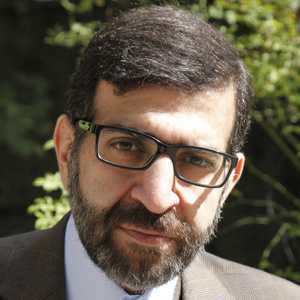Saudi Challenges and Middle East Developments

Domestic power politics in Saudi Arabia today are witnessing a myriad of challenges and paradoxes. With the death of King Fahd, his octogenarian brother Abdullah assumed power— following him in the House of Saud’s hereditary line of succession are the ailing Sultan bin Abdul Aziz and the last remnant of the second generation of Saudi rulers, Amir Naif, who are waiting to assume the mantle of leadership in what is the tribal monarchy of this Middle Eastern country.
The second generation of Saudi rulers –most of them now in their seventies- should gradually prepare to hand over power to the next generation, which possesses a different mentality when it comes to such notions as power and society. This third generation of leaders is not unfamiliar with the concepts of civil society and democracy, and is looking with a mixture of hope and fear at the future of a country that is in a transitional phase—moving from tradition to modernity. This will be the most basic challenge for the al Saud Household in the near future. Interestingly, a considerable percentage of both the second and third generations of Saudi leaders are graduates of European and American academic centers. Their familiarity with the modern world has nonetheless increased rifts among the monarchical family, turning administration into a draconian task.
The affinity of most Saudi princes for power and wealth has paved the way for the American bureaucracy to infiltrate the deepest and most influential layers of Saudi Arabia’s ruling system. A new class of elite who have been educated by Westerners, their advocacy of Western culture, democracy, and progress, and a transition from tradition to modernism (and imbedded discrimination against women) in this oil-rich country all herald tough days ahead for the desert kingdom.
Nevertheless, a remarkable number of the Bin Laden family, and other aristocrats who enjoy a privileged status in Saudi society, are either supportive of or apathetic about terrorism. The dualistic behavior of the government (and other national institutions) toward the roots of terrorism in the birthplace of Islam will almost certainly fuel future crises.
The biggest threats to the House of Saud are Al Qaeda extremists, modernists, and intra-family rivalry. Added to this are the regional ambitions of the Saudi state vis-à-vis powerful rivals such as Iran. One case is clear: King Abdullah views himself as a political leader whose clout should extend beyond the borders of his country. In the Arab World, Saudi Arabia has its challengers in Egypt, Syria and more recently, Qatar. In the greater Middle East, it is contested by Iran, Turkey, Egypt, and Israel, and in the Muslim World overall, Egypt, Iran, Turkey and Malaysia are powerful opponents. None of these rivals however prevent King Abdullah from mustering global and regional efforts to propose initiatives on the different issues that affect Lebanon and Palestine—important pan-Arab and pan-Islamic concerns. Riyadh, which unlike its nemesis Iran enjoys close relations with the West, is looking for a reliable source of maneuverability.
But today, the Saudi state is entrapped in political and security paradoxes. It has turned into a bustling center for Salafi doctrines that threaten global security, and it is essentially the host to Al Qaeda headquarters. On the other hand, its intelligence services are also funding radical forces in Iraq and Afghanistan in a less than courteous manner.
Perhaps, however, a new age of détente between Iran and Saudi Arabia can resolve many regional conflicts. During the three decades that have passed since the Iranian Islamic Revolution, the Middle East has seen better days—days when Tehran and Riyadh resolved to cultivate closer ties. But in the past, once bilateral ties soared, regional cooperation and development gave way to tension and counter-productive rivalry. It shouldn’t be hard to conclude that a close partnership between Iran and Saudi Arabia can neutralize plots by the global powers, and will benefit both countries and the entire Persian Gulf region.

